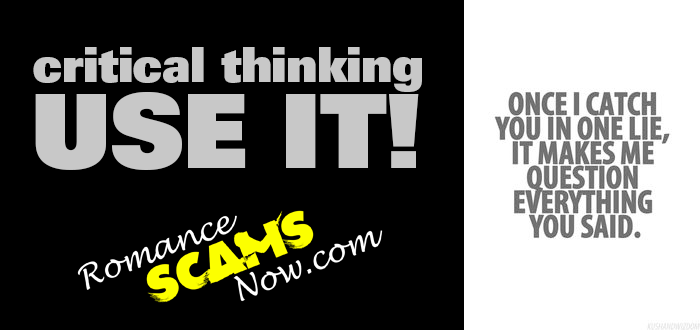
SCARS Institute’s Encyclopedia of Scams™ Published Continuously for 25 Years

Online Money Scams – Scam Basics
Money Scams Come In A Variety Of Types
Here are some of the basic types
Fraudsters Gain Your Trust – Then Steal Your Money
Portions Reprinted from Western Union
They use any means to contact victims—telephone, snail mail, email, and the Internet!
They gain your trust and when they have you hooked, they ask you for money; then they take it and run.
The scenarios they use to lure you in change, constantly, but you can protect yourself and your friends and family by arming yourself with knowledge of the most common types of fraud.
Types of Scams
- Advanced Fees / Prepayment / 419 Money Scam
- Mystery Shopping Scam
- Overpayment Scam
- Employment Scam
- Lottery / Prize Scam
- Rental Property Scam
- Emergency / Grandparent Scam
- Internet Purchase Scam
- Relationship Scam / Romance Scam / Dating Scam
- Fake Check Scam
- Anti-Virus / Extortionware / Encryption Scam / Ransomware
Advanced Fees / Prepayment / 419 Money Scam
Scammers pose as representatives from phony loan companies and use authentic-looking documents, emails, and websites to appear legitimate. They charge “fees” in advance of making loans. Consumers pay, but the loans never come through. Scammers are long gone and they sometimes regularly change the name of their “businesses” to avoid law enforcement.
This is one variation of a scam called the “advance fee” or “prepayment” scam. Scammers can also lure victims in with promises of investments or inheritance gifts in exchange for a fee. But it all comes down to the same theme: Victims pay money to someone in anticipation of receiving something of greater value and then receive little or nothing in return.
See also: Fake Check Scam
Mystery Shopping Scam
Mystery shopping scams are popular with criminals who target employment websites. The ploy’s simple: Scammers send victims a check and tell them to use the funds to “evaluate” Western Union’s money transfer service. Victims wire the money only to find out later that the checks bounce and they’re responsible for paying the bank back.
See also: Fake Check Scam and Employment Scam
Overpayment Scam
With overpayment scams, fraudsters play the role of buyer and target consumers selling a service or product. The “buyer” sends the seller a legitimate-looking check, usually drawn on a well-known bank, for an amount higher than the agreed-upon price. They contact an explanation for this overpayment and instruct the seller to deposit the check and wire back the excess funds. Weeks later, the victim learns the check is fake but is still on the hook to pay the bank back for any money withdrawn.
See also: Internet Purchase Scam and Fake Check Scam
Employment Scam
Employment scams generally start with a too-good-to-be-true offer—work from home and earn thousands of dollars a month, no experience needed—and end with consumers out of a ‘job’ and out of money. They generally follow one of three patterns:
- Scammers pose as a new ‘employer’ and send victims a check to cover up-front expenses, like supplies. Victims deposit the check, buy the necessary supplies, and wire any remaining funds back to the scammer. Weeks later, they find out the checks are fake and they’re on the hook for the entire amount.
- Scammers pose as ‘recruiters’ pitching offers of guaranteed employment or as ‘employers’ extending job offers on the condition that victims pay upfront for things like credit checks or application or recruitment fees. Victims pay, but job offers never materialize.
- Scammers pose as ‘company’ representatives and seek sensitive personal and/or financial information from victims under the guise of doing credit or background checks. They then target victims later on for identity theft.
See also: Mystery Shopping Scam and Fake Check Scam
Lottery / Prize Scam
Lottery or prize scams follow two similar patterns:
- A victim gets an unsolicited phone call, email, letter or fax from someone claiming to work for a government agency or representing a well-known organization or celebrity, notifying them that they’ve won a lot of money or a prize. The scammer gains their trust and explains that, in order to collect the winnings, they first have to send a small sum of money to pay for processing fees or taxes. Following these instructions, victims immediately wire the money, but never get their “winnings.” And they’re out the money they paid for “fees and taxes.”
- Victims get an unsolicited check or money order and directions to deposit the money, and immediately wire a portion of it back to cover processing fees or taxes. Weeks later, victims learn that the checks are counterfeit, but have already wired the money to cover the “taxes” and can’t get it back. And they’re on the hook to pay their banks back for any money they withdrew.
See also: Advance Fee/Prepayment Scam and Fake Check Scam
Rental Property Scam
Sophisticated scammers use the Internet, and particularly free classified websites, to prey on unsuspecting real estate victims. Rental property scams generally happen in one of two ways:
- Renters are looking for a house or an apartment to lease and get scammed by an “owner.” Victims come across a place in a great area, at a great price. The advertisement looks legitimate so they start communicating with the “owner,” generally by email. The owner says the place is theirs if they wire money to cover an application fee, security deposit, etc. They wire the money, and then never hear from the “owner” again.
- Owners are renting out their house or apartment and get scammed by a “renter.” “Renters” contact victims, generally by email, and express interest in renting the house or apartment. Scammers send a check for the deposit but then cancel the deal. Victims wire the money back only to find out the check was a fake.
See also: Internet Purchase Scam and Fake Check Scam
Emergency / Grandparent Scam
Emergency scams play off of peoples’ emotions and strong desire to help others in need. Scammers impersonate their victims and make up an urgent situation—I’ve been arrested, I’ve been mugged, I’m in the hospital—and target friends and family with urgent pleas for help, and money.
Emergency scams also come in all shapes and sizes. There’s the Grandparent Scam where con artists contact the elderly claiming to be their grandchild, urgently asking for money. And the Social Networking Scam where con artists hack into social networking accounts and then target friends with frantic requests for money, claiming injury, arrest, etc.; they do the same by hacking email accounts. They use the information in these accounts to supply enough personal detail to make their requests appear legitimate.
Also see: Relationship / Romance & Dating Scams
Internet Purchase Scam
In the internet purchase scam, criminals prey on victims who bid on items using an online auction website or service. It generally plays out in one of two ways:
- Victims win the bid, which is likely a sham or set up, and are told the seller only accepts money transfers for payment. The seller tells the buyer to put the transaction in a fictitious name, or the name of a loved one. Scammers convince victims this protects their money until the goods or services are received. The seller then creates a false ID in the fictitious name and retrieves the funds. The merchandise never arrives.
- The other variation is when the original auction is legitimate but the victims don’t win the bid. They’re contacted later on by another party offering to sell them the same item under similar terms and instructed to wire the money as payment. The money is sent but the buyer never receives the goods.
See also: Overpayment Scam, Rental Property Scam and Fake Check Scam
Relationship Scam / Romance Scam / Dating Scam
The relationship scam starts simply: A man and woman meet on the Internet. The relationship progresses: They email, talk on the phone, and trade pictures. And, finally, they make plans to meet, and even to get married. As the relationship gets stronger, things start to change. The man asks the woman to wire him money; he needs bus fare to visit a sick uncle. The first wire transfer is small but the requests keep coming and growing—his daughter needs emergency surgery, he needs airfare to come for a visit, etc. The payback promises are empty; the money’s gone, and so is he.
Also see: Emergency / Grandparent Scam
Fake Check Scam
Fake checks play a starring role in lots of different scams: advance fee or prepayment scams; mystery shopping scams; lottery prize scams, and more. Victims get an unsolicited check or money order and directions to deposit the money and immediately wire a portion of it back to cover various expenses, like processing fees or taxes. Weeks later, victims learn that the checks are counterfeit, but they’ve already wired the money and can’t get it back. And they’re on the hook to pay their banks back for any money they withdrew.
Also see Advance Fee/Prepayment Scam, Mystery Shopping Scam, Employment Scam, Overpayment Scam, Internet Purchase Scam, Lottery/Prize Scam and Rental Property Scam.
Anti-Virus / Extortionware / Encryption Scam / Ransomware
A fraudster contacts the victim claiming that they are from a well-known computer or software company and have detected a virus on the victim’s PC. The fraudster advises that the virus can be removed for a small fee with a payment by either credit card or an online money transfer. The fraudster then requests remote access to the victim’s computer to install anti-virus software to remove the virus. Unfortunately, the fraudster uses this access to take control of the victim’s computer to install software and malware. The fraudster may also steal credit card information that is on the computer and use it to complete online money transfer transactions.
PLEASE SHARE OUR ARTICLES WITH YOUR FRIENDS & FAMILY
HELP OTHERS STAY SAFE ONLINE – YOUR KNOWLEDGE CAN MAKE THE DIFFERENCE!
THE NEXT VICTIM MIGHT BE YOUR OWN FAMILY MEMBER OR BEST FRIEND!
By the SCARS™ Editorial Team
Society of Citizens Against Relationship Scams Inc.
A Worldwide Crime Victims Assistance & Crime Prevention Nonprofit Organization Headquartered In Miami Florida USA & Monterrey NL Mexico, with Partners In More Than 60 Countries
To Learn More, Volunteer, or Donate Visit: www.AgainstScams.org
Contact Us: Contact@AgainstScams.org
-/ 30 /-
What do you think about this?
Please share your thoughts in a comment below!
Table of Contents
LEAVE A COMMENT?
Recent Comments
On Other Articles
- Arwyn Lautenschlager on Love Bombing And How Romance Scam Victims Are Forced To Feel: “I was love bombed to the point that I would do just about anything for the scammer(s). I was told…” Feb 11, 14:24
- on Dani Daniels (Kira Lee Orsag): Another Scammer’s Favorite: “You provide a valuable service! I wish more people knew about it!” Feb 10, 15:05
- on Danielle Delaunay/Danielle Genevieve – Stolen Identity/Stolen Photos – Impersonation Victim UPDATED 2024: “We highly recommend that you simply turn away form the scam and scammers, and focus on the development of a…” Feb 4, 19:47
- on The Art Of Deception: The Fundamental Principals Of Successful Deceptions – 2024: “I experienced many of the deceptive tactics that romance scammers use. I was told various stories of hardship and why…” Feb 4, 15:27
- on Danielle Delaunay/Danielle Genevieve – Stolen Identity/Stolen Photos – Impersonation Victim UPDATED 2024: “Yes, I’m in that exact situation also. “Danielle” has seriously scammed me for 3 years now. “She” (he) doesn’t know…” Feb 4, 14:58
- on An Essay on Justice and Money Recovery – 2026: “you are so right I accidentally clicked on online justice I signed an agreement for 12k upfront but cd only…” Feb 3, 08:16
- on The SCARS Institute Top 50 Celebrity Impersonation Scams – 2025: “Quora has had visits from scammers pretending to be Keanu Reeves and Paul McCartney in 2025 and 2026.” Jan 27, 17:45
- on Scam Victims Should Limit Their Exposure To Scam News & Scammer Photos: “I used to look at scammers photos all the time; however, I don’t feel the need to do it anymore.…” Jan 26, 23:19
- on After A Scam, No One Can Tell You How You Will React: “This article was very informative, my scams happened 5 years ago; however, l do remember several of those emotions and/or…” Jan 23, 17:17
- on Situational Awareness and How Trauma Makes Scam Victims Less Safe – 2024: “I need to be more observant and I am practicing situational awareness. I’m saving this article to remind me of…” Jan 21, 22:55
ARTICLE META
Important Information for New Scam Victims
- Please visit www.ScamVictimsSupport.org – a SCARS Website for New Scam Victims & Sextortion Victims
- Enroll in FREE SCARS Scam Survivor’s School now at www.SCARSeducation.org
- Please visit www.ScamPsychology.org – to more fully understand the psychological concepts involved in scams and scam victim recovery
If you are looking for local trauma counselors please visit counseling.AgainstScams.org or join SCARS for our counseling/therapy benefit: membership.AgainstScams.org
If you need to speak with someone now, you can dial 988 or find phone numbers for crisis hotlines all around the world here: www.opencounseling.com/suicide-hotlines
A Note About Labeling!
We often use the term ‘scam victim’ in our articles, but this is a convenience to help those searching for information in search engines like Google. It is just a convenience and has no deeper meaning. If you have come through such an experience, YOU are a Survivor! It was not your fault. You are not alone! Axios!
A Question of Trust
At the SCARS Institute, we invite you to do your own research on the topics we speak about and publish, Our team investigates the subject being discussed, especially when it comes to understanding the scam victims-survivors experience. You can do Google searches but in many cases, you will have to wade through scientific papers and studies. However, remember that biases and perspectives matter and influence the outcome. Regardless, we encourage you to explore these topics as thoroughly as you can for your own awareness.
Statement About Victim Blaming
SCARS Institute articles examine different aspects of the scam victim experience, as well as those who may have been secondary victims. This work focuses on understanding victimization through the science of victimology, including common psychological and behavioral responses. The purpose is to help victims and survivors understand why these crimes occurred, reduce shame and self-blame, strengthen recovery programs and victim opportunities, and lower the risk of future victimization.
At times, these discussions may sound uncomfortable, overwhelming, or may be mistaken for blame. They are not. Scam victims are never blamed. Our goal is to explain the mechanisms of deception and the human responses that scammers exploit, and the processes that occur after the scam ends, so victims can better understand what happened to them and why it felt convincing at the time, and what the path looks like going forward.
Articles that address the psychology, neurology, physiology, and other characteristics of scams and the victim experience recognize that all people share cognitive and emotional traits that can be manipulated under the right conditions. These characteristics are not flaws. They are normal human functions that criminals deliberately exploit. Victims typically have little awareness of these mechanisms while a scam is unfolding and a very limited ability to control them. Awareness often comes only after the harm has occurred.
By explaining these processes, these articles help victims make sense of their experiences, understand common post-scam reactions, and identify ways to protect themselves moving forward. This knowledge supports recovery by replacing confusion and self-blame with clarity, context, and self-compassion.
Additional educational material on these topics is available at ScamPsychology.org – ScamsNOW.com and other SCARS Institute websites.
Psychology Disclaimer:
All articles about psychology and the human brain on this website are for information & education only
The information provided in this article is intended for educational and self-help purposes only and should not be construed as a substitute for professional therapy or counseling.
While any self-help techniques outlined herein may be beneficial for scam victims seeking to recover from their experience and move towards recovery, it is important to consult with a qualified mental health professional before initiating any course of action. Each individual’s experience and needs are unique, and what works for one person may not be suitable for another.
Additionally, any approach may not be appropriate for individuals with certain pre-existing mental health conditions or trauma histories. It is advisable to seek guidance from a licensed therapist or counselor who can provide personalized support, guidance, and treatment tailored to your specific needs.
If you are experiencing significant distress or emotional difficulties related to a scam or other traumatic event, please consult your doctor or mental health provider for appropriate care and support.
Also read our SCARS Institute Statement about Professional Care for Scam Victims – click here to go to our ScamsNOW.com website.








![To Be A Scammer? An Overview Of Scammers Fraudsters & Online Con Artists - 2024 [UPDATED] what is a scammer what-is-a-scammer](https://romancescamsnow.com/wp-content/uploads/2021/10/what-is-a-scammer.png)
![New Research Study on Stolen Valor - Military Scams - STUDY NOW COMPLETED [UPDATED] Military Impersonation Research Study New Research Study on Stolen Valor - Military Scams](https://romancescamsnow.com/wp-content/uploads/2022/03/Military-Impersonation-Research-Study.png)







Thank you for your comment. You may receive an email to follow up. We never share your data with marketers.